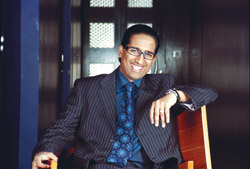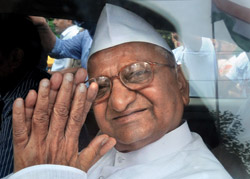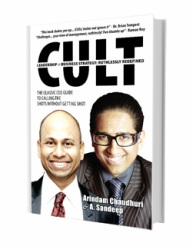Without even an iota of apprehension, Kejriwal has been able to create a wave of passion and excitement among common Indians for a probable better political future. Through his campaign against political parties and leaders, he has been instrumental in giving a vent to the pent up anger of the public against the corrupt, inefficient and slothful political outfits. However, the top brass of such parties can get their feet wet and get away with it, because even today, there is a dearth of intra-party democracy in almost all political parties in India. This very opacity guards the elite big bosses of the parties, who thus can never be replaced from their esteemed chairs, which eventually provides an incubation environment to corruption, favouritism and intra-party dictatorship. The most potent example of such perceived bravado is the Indian National Congress’s obsession with the Nehru-Gandhi family, whose grip on the party is absolute. Therefore, despite the Congress party and their allies getting embroiled in one expose’ after another involving multibillion bucks, no eyebrows are raised and no fingers are pointed against its leadership from within. None of the Congress members have ever demanded explanations or enquires for the series of scams. The same is true for almost all political parties, except a few... in fact, except too few – which again is a temporary phenomenon. The dictatorial and dynastic rule of political parties is endemic to India; it is just the baton that gets passed from generation to generation.
The root cause for such a contest of attrition of democracy is that our Constitution does not enforce a structure for inner-party democracy and does not account for the fact that the electorate should have the right to choose the leader of every political party. This very loophole of our Constitution is undermined and exploited by almost every political party, who treat their fiefdom as a new business venture to stash up piles of cash and benefit their personal interest. Consequently, the recruitment and development of party members are not based on competencies but rather on loyalty and lobbying. Read more....
An Initiative of IIPM, Malay Chaudhuri and Arindam Chaudhuri (Renowned Management Guru and Economist).
For More IIPM Info, Visit below mentioned IIPM articles
SC slams AICTE's illicit control on MBA courses
MBA, MCA courses no longer under AICTE
2012 : DNA National B-School Survey 2012
Ranked 1st in International Exposure (ahead of all the IIMs)
Ranked 6th Overall
Zee Business Best B-School Survey 2012
Prof. Arindam Chaudhuri’s Session at IMA Indore
IIPM IN FINANCIAL TIMES, UK. FEATURE OF THE WEEK
IIPM strong hold on Placement : 10000 Students Placed in last 5 year
IIPM’s Management Consulting Arm-Planman Consulting
Professor Arindam Chaudhuri – A Man For The Society….
IIPM: Indian Institute of Planning and Management
IIPM makes business education truly global
Management Guru Arindam Chaudhuri
Rajita Chaudhuri-The New Age Woman
IIPM B-School Facebook Page
IIPM Global Exposure
IIPM Best B School India
IIPM B-School Detail
IIPM Links
IIPM : The B-School with a Human Face
------------------------------------------------------------------------



 RSS Feed
RSS Feed